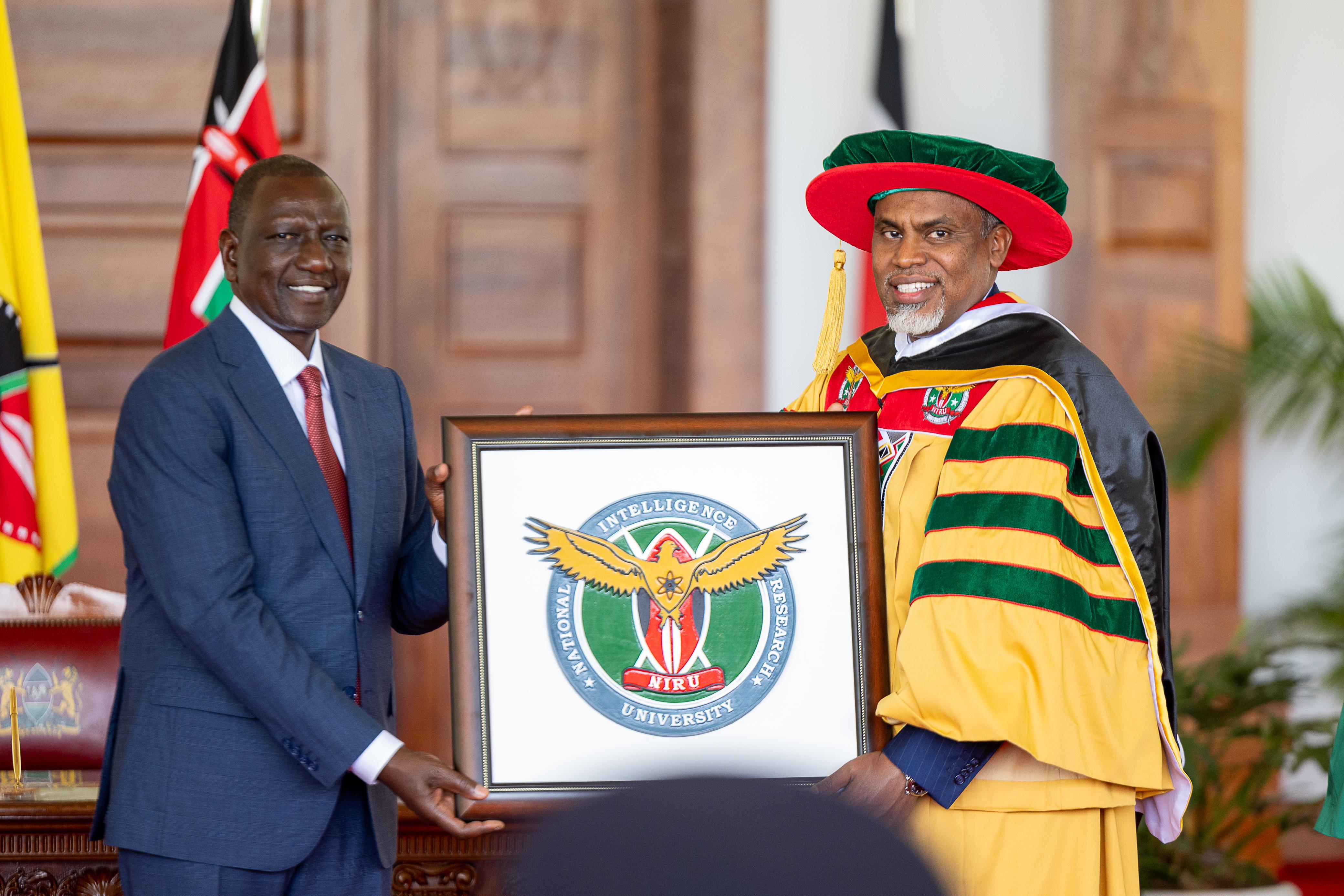
President William Ruto on Tuesday awarded charters to the National Intelligence Research University and the Islamic University of Kenya, recognising them as the newest additions to Kenya’s higher education landscape.
The two universities, which join the ranks of 66 chartered institutions nationwide, are set to play pivotal roles in advancing Kenya’s socio-economic and security agendas.
“This event marks a significant milestone in Kenya’s university education history,” Ruto said.
He underscored the nation’s tremendous educational progress since 1970, when Kenya had only one university to now 79 universities across the country serving nearly 600,000 students.
Ruto urged the Commission for University Education to redouble its efforts to elevate other institutions to charter status by ensuring rigorous implementation of high standards in higher education.
The President highlighted the essential role that chartered universities play in fostering innovation and societal progress, a responsibility that now extends to the newly chartered institutions.
He emphasised that both universities must ensure a commitment to societal advancement through high-quality research and innovation, thereby addressing pressing national issues such as youth unemployment, urbanisation, and health.
One of the most critical areas in which these institutions will contribute is national security.
The National Intelligence Research University is particularly significant in this regard, as it will focus on training intelligence officers to address complex security challenges, including terrorism and cyber threats.
"Chartering the National Intelligence Research University is especially timely, as Kenya faces complex security challenges,” Ruto noted.
He expressed his vision for the university to become a hub for research and innovation that not only enhances national stability but also supports Kenya’s aspirations to lead in global security issues.
The Islamic University of Kenya was charged with an equally profound mission: promoting social cohesion and tolerance.
The President envisioned it as a beacon of solidarity, cohesion, and peaceful coexistence in a world often divided by race, ethnicity, and religion.
He commended the 27,000 engineering students enrolled in various Kenyan universities during the 2023/2024 academic year, noting the crucial role that engineering and technical skills play in the country’s development.
He encouraged universities to work closely with industries to equip future engineers with skills aligned with Kenya’s development needs.
“Engineering graduates drive innovation and sustainable progress in every sector, aligning with the government’s vision for inclusive growth,” Ruto emphasised.
He said he has confidence in the two new universities’ potential to contribute to Kenya’s transformative ambitions.
He urged the National Intelligence Research University to look beyond Kenya’s borders and establish itself as a diverse institution by admitting students from the Global South.
This, he said, would foster a more diverse understanding of the security sector.









